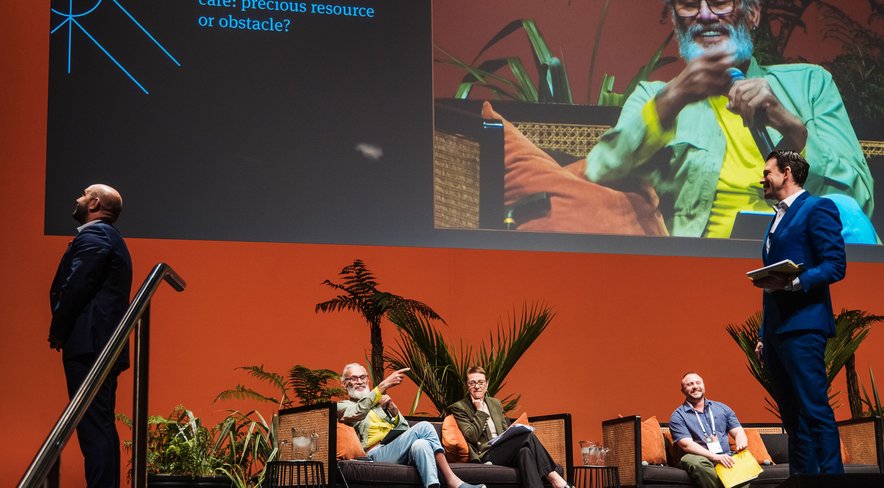GP23: Continuity of care – precious resource or obstacle?
One of the reasons people choose to specialise in general practice is because of the relationships they get to build over time and over generations, across communities and whānau – getting to know the person, not just the patient.
This continuity of care is something that many patients are thankful for.
Recently it has become harder for GPs and rural hospital doctors to provide this continuity of care because an increase in burnout and early retirement has resulted in workforce shortages. With it taking between 11-14 years to become a specialist, and a lack of medical graduates choosing this field of medicine, it is becoming harder to plug the gap and ensure there are enough specialist GPs and rural hospital doctors to provide the complex, comprehensive, and timely care to communities.
So, given the shortage of GPs, should continuity of care be treated as a precious resource and used only where it will provide the most benefit? Can we sensibly divide patients into cohorts and determine which need continuity of care, and which don’t?
These are the questions that were put to our panellists at GP23: the Conference for General Practice.
Our panellists were:
- Dr Luke Bradford, College Medical Director and Tauranga GP
- Morag McDowell, Health and Disability Commissioner
- Simon Pointer, National Pharmacist from Te Aho o Te Kahu Cancer Control Agency
- Paora Stanley, CEO of Te Ruanaga Ngai te rangi Iwi Trust and Ngai te rangi Settlement Trust in Tauranga.
Dr Bradford started the conversation highlighting his experience as a GP. He reiterated that continuity of care is the gold standard and having those relationships with patients and whānau is what makes the job so rewarding.
But he said this model of care is under threat due to workforce shortages, burnout, remuneration issues, and increased demands on time - such as admin, paperwork and patient complexity. Along with our ageing workforce and retiring GPs, continuity of care is becoming harder to sustain.
He spoke about how GPs and practices could maintain that relationship with patients if the number of GPs is decreasing. One way is to use multidisciplinary teams and work with patients in a trusted team.
Data and the need for more consistency were the main themes that Simon Pointer from Te Aho o Te Kahu spoke about. He acknowledged the important role GPs play throughout someone’s cancer journey – from diagnosis, treatment and support – and highlighting that GPs, rural hospital doctors, and practices are precious resources that should be valued.
Something as simple as consistency in the language that is used in software and patient notes about treatments given, dosages, and medication could make a huge difference in continuity of care, especially as patients would be seen by a range of specialists and services across primary and secondary care.
When it comes to data, Simon spoke about the inequities in the system and how it is crucial that health providers have information about who is in the system and receiving treatment for cancer, but also trying to identify who isn’t in the system and should be receiving treatment for cancer.
Having continuity of care so people can enrol at a practice and see a GP means that those who need referrals or further treatment can make it into the system and start on their journey to better health.
Health and Disability Commissioner Morag McDowell started by outlining that while there is a 36 percent increase in HDC complaints compared to pre-COVID times, the number of complaints that relate to general practitioners has kept constant over this time, at around 13 percent.
A member asked if the Commission takes into account the pressures on the workforce and their practices when addressing a complaint. The Commissioner said yes, this is taken into consideration and continually monitored.
She highlighted that continuity of care is not a commodity that should be rationed, and that it should be reliant on good patient management systems and good communication.
And while it is never nice to be on the receiving end of a complaint, it is important to look at the findings and the recommendations and identify where you can make improvements to the way you practice.
The final speaker on the panel, Paora Stanley made an impactful first statement by saying continuity of care isn’t even a possibility for many in his community.
He talked about people not even knowing they’re sick or not having anyone believe that they are sick, not having the means to get to a practice, not being able to take time off work during the day and not being able to pay for the appointment.
He demonstrated how inaccessible it can be to get to a GP by asking panel moderator Michael Morrah and Dr Bradford to stand side by side, with Michael taking a step backwards with each barrier Paora read out. It wasn’t long until Michael had disappeared from sight at the other end of the stage.
Paora spoke about the free medical service his organisation runs in the community which opens every evening at 6pm and doesn’t close until the last patient has been seen. A ‘by Māori for Māori’ approach like this ensures people can get the care they need when they need it, not waiting until things are more dire and require more intensive treatment.
Dr Bradford shared his experiences of being the GP on Matakana Island and how he built trusted relationships with the community and became part of the whanau, even joining the local rugby team. Those relationships continue today and many still have him as their GP.
As the College’s medical director Dr Bradford said it is his role to be asking questions and advocating for the improvement of health outcomes, saying he believes the College is being listened too, but the actions aren’t quick enough.
Those who attended GP23 have a link to watch the recordings of all sessions that were held in the main auditorium (the Kiri Te Kanawa theatre). The recordings are available for 90 days.



